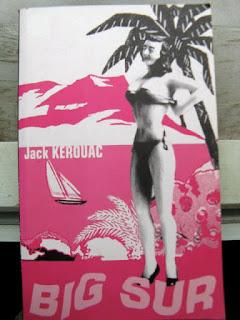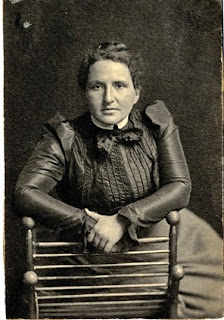Canty's secondhand bookstore, Fyshwick, Canberra.
Asleep, by Banana Yoshimoto. Have I read this?
I ask the former potter. Is this the book? Is this the book where the girl goes to visit a sick girl living in a remote house. It's near a lake. And the girl foretells the future or something. She's taken there by a boy, the girl's brother. And there's something about their mother?
Is that a banana book? Or a Murakami?
He shakes his head. He doesn't know.
The trouble is, I have trouble remembering what I've read. And I don't retain things - just the atmosphere, and one or two things. Makes rereading an adventure.
I buy the Banana book.
The National Library, Canberra: The Life of
Patrick White.
Born 1912. Died 1990. Exactly the same as my father. I remember noting this at the time.
Little Paddy's letters to the fairies, and to Santa. He wants a heap of things, including 'a little mouse that runs across the floor'. He hopes Santa won't think him greedy, but he does want these things so badly. I start to laugh - I want to laugh right out loud but people would look at me. (Since when have I worried about this?)
Paddy dressed at The Mad Hatter. Side on, striding: a formal shot.
Paddy's asthma improved so much when he went to the Blue Mountains that his mother bought a house at Winmalee.
Patrick White's manuscripts, in a loose, flowing hand. Plays he wrote.
Portraits of Patrick.
Photos of Patrick and Manoly. During the war, when they met. With their dogs.
His black knitted beanie with a pom pom on top. A photo of him in the beanie.
A re-creation of his study in London. His desk with long drawers. His typewriter, though he wrote in longhand.
Typed letters from Patrick.
The letter where he de-friends Geoffrey Dutton. 'I've had enough of Duttonry.'
Patrick with actors and actresses.
First editions of his books.
Happy Valley, soon to be reprinted for the first time. I want a copy of this.
Patrick and Manoly in their kitchen in Centennial Park.
Patrick's Nobel Prize medal, and the certificate.
I pick up free postcards at the exit/entrance. Paddy as Mad Hatter. I recall that Roky Erickson also fancy- dressed as the mad hatter as a child. There's a picture of him in the cd booklet and on the cd of
True Love Casts Out all Evil.
A bookmark. Patrick White's glasses. How apt.
He saw things differently. He makes us see differently. That's what a great writer does. He didn't like people much. He loved them so much he thought some were transcendent.
The National Portrait Gallery, Canberra:
More portraits of Patrick White. Nick Cave. The original of the William Dargie portrait of Elizabeth 11 that hung in every school.
The original picture for the Nimrod poster of Mo Rene by Martin Sharp. Martin Sharp by Gary Shead.
A photo of Lee Lin Chin, from SBS. Aboriginal Australians well represented.
Many of portraits of notable Australians. Princess Mary of Denmark. Just marry a Danish Prince. Or write nobel prize-winning books.
The former potter as we go out: That's a big building to house a few pictures.
We walk in mist around the lake. 11 degrees, and gloomy. It's not too bad. The carillon chimes. And now we're getting damp. Go into the National Gallery.
We walk around briskly. Indoor walking track. In case of wet weather. We know this place like the backs of our hands, as they say. Matisse. Waterlilies. The haystack. That sculpture by Modigliani. The Ballets Russes costumes. That collage by Picasso. The Asian art. The decorative arts.
Near the loos, photographs of early expeditions to Antarctica. Horses and dogs on board the ship. The huskies curled up, asleep. The animals suffered dreadfully on the long trip.
We head down the escalator. It comes to me what the book was.
The Lake, I say. That book was
The Lake, by Banana Yoshimoto. The one with the brother and sister, and the girl who knows them. The house was beside a lake.
I haven't read that one, says the former potter.
Last night, back at home, 1000 km or so to the north of Canberra, I started
Asleep, by Banana Yoshimoto. After a few pages, I went to sleep.

























